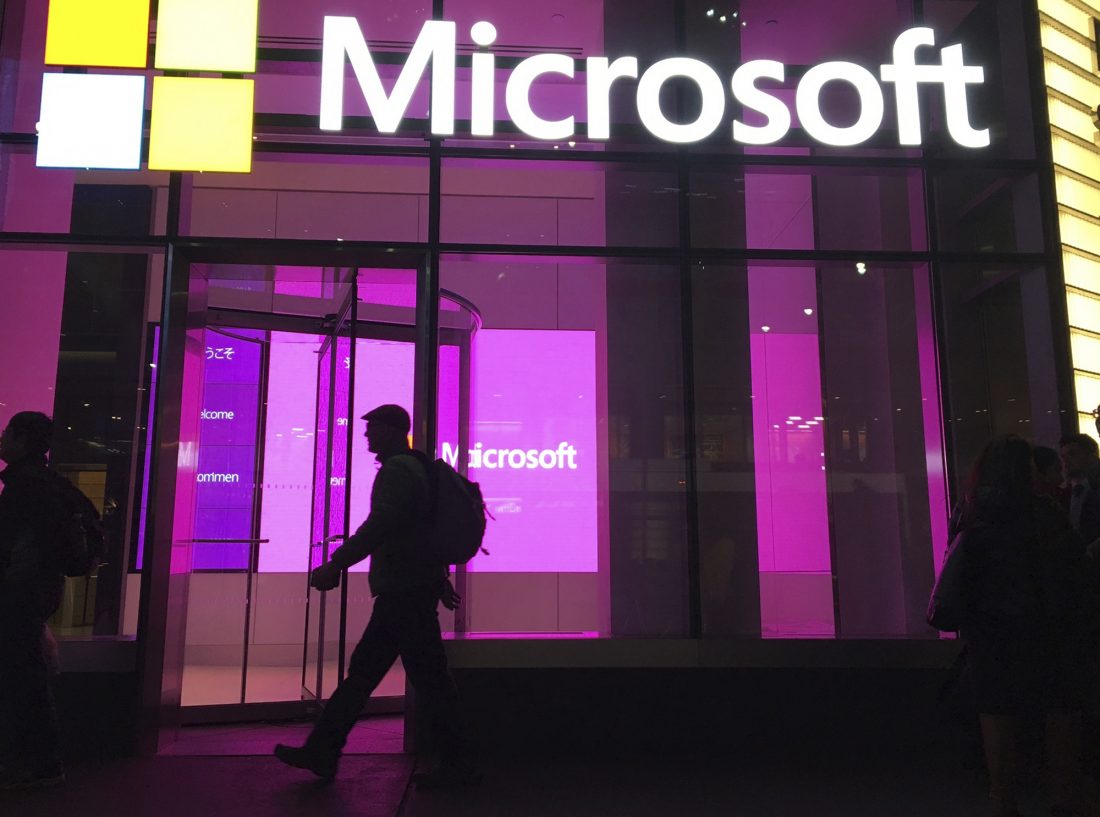Russian hackers targeting U.S. campaigns, Microsoft says

FILE - In this Nov. 10, 2016, file photo, people walk past a Microsoft office in New York. Microsoft said Thursday, Sept. 10, 2020, that the same Russian military intelligence outfit that hacked the Democrats in 2016 has been trying to break into more than 200 organizations in recent weeks, including political parties and consultants. (AP Photo/Swayne B. Hall, File)
BOSTON — The same Russian military intelligence outfit that hacked the Democrats in 2016 has renewed vigorous U.S. election-related targeting, trying to breach computers at more than 200 organizations including political campaigns and their consultants, Microsoft said Thursday.
The intrusion attempts reflect a stepped up effort to infiltrate the U.S. political establishment, the company said. “What we’ve seen is consistent with previous attack patterns that not only target candidates and campaign staffers but also those who they consult on key issues,” Tom Burt, a Microsoft vice president, said in a blog post. U.K. and European political groups were also probed, he added.
Most of the hacking attempts by Russian, Chinese and Iranian agents were halted by Microsoft security software and the targets notified, he said. The company would not comment on who may have been successfully hacked or the impact.
Although U.S. intelligence officials said last month that the Russians favor President Donald Trump and the Chinese prefer his Democratic challenger, former Vice President Joe Biden, Microsoft noted Thursday that Chinese state-backed hackers have targeted “high profile individuals associated with the election,” including people associated with the Biden campaign.
China’s hackers largely gather intelligence for economic and political advantage, while Russia tends to weaponize stolen data to destabilize other governments.
Microsoft did not assess which foreign adversary poses the greater threat to the integrity of the November presidential election. The consensus among cybersecurity experts is that Russian interference is the gravest. Senior Trump administration officials have disputed that, although without offering any evidence.
“This is the actor from 2016, potentially conducting business as usual,” said John Hultquist, director of intelligence analysis at the cybersecurity firm FireEye. “We believe that Russian military intelligence continues to pose the greatest threat to the democratic process.”
The Microsoft post shows that Russian military intelligence continues to pursue election-related targets undeterred by U.S indictments, sanctions and other countermeasures, Hultquist said. It interfered in the 2016 campaign seeking to benefit the Trump campaign by hacking the Democratic National Committee and emails of John Podesta, the campaign manager of Hillary Clinton, and dumping embarrassing material online, congressional and FBI investigators have found.
The same GRU military intelligence unit, known as Fancy Bear, that Microsoft identifies as being behind the current election-related activity also broke into voter registration databases in at least three states in 2016, though there is no evidence it tried to interfere with voting.
Microsoft, which has visibility into these efforts because its software is both ubiquitous and highly rated for security, did not address whether U.S. officials who manage elections or operate voting systems have been targeted by state-backed hackers this year. U.S. intelligence officials say they have so far not seen no evidence of infiltrations.
Thomas Rid, a Johns Hopkins geopolitics expert, said he was disappointed by Microsoft’s refusal to differentiate threat level by state actor. “They’re lumping in actors that operate in a very different fashion, probably to make this sound more bipartisan,” he said. “I just don’t understand why.”






